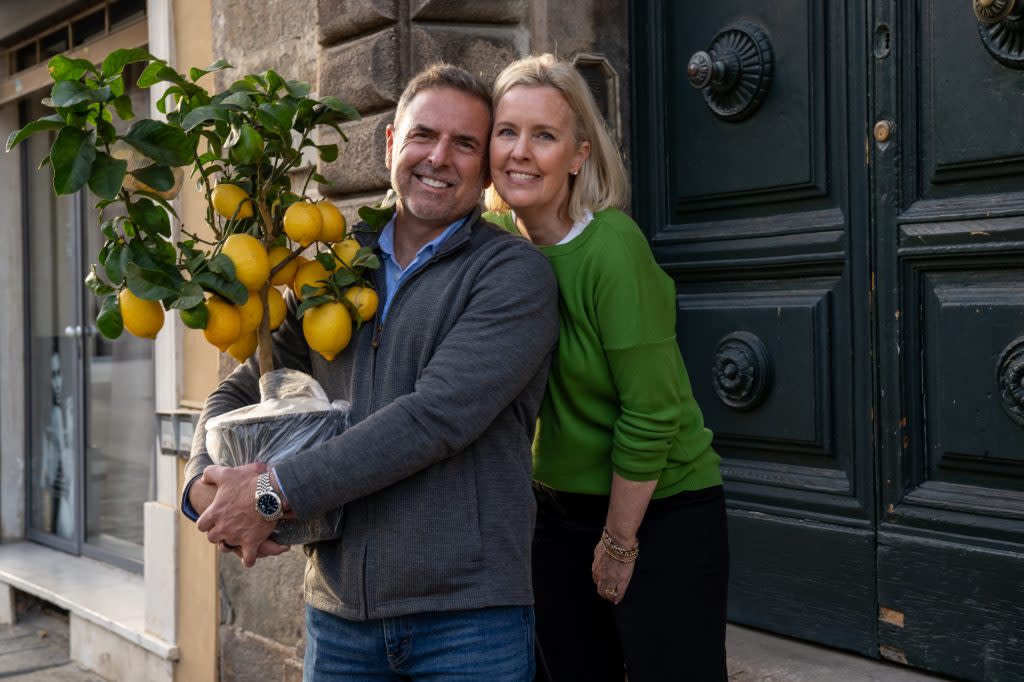Rich Americans are buying investment properties abroad—but owners warn ‘a lot of people lose a lot of money’
7 min readFor Ashley and Dario Campolattaro, there’s no beating the charm of Tuscany. The Campolattaros’ primary residence is in Northern Virginia, but they travel frequently to Italy to visit Dario’s family, and have long dreamed of buying a home there to make the trips easier and open doors in Europe for their three sons. The pace and quality of life appeal to them. So do the historic buildings, the lush countryside and the walkable nature of the cities.
“We just love it and we want to spend more time there,” Dario, 54, tells Fortune.
The Campolattaros are hardly the only Americans who dream of buying a home abroad for vacation or retirement or—in a growing trend noted by real estate agents—as investment properties. There is also an affluent subset seeking golden passport opportunities in countries like Malta, Portugal, and Spain.
Buying abroad can make sense for many reasons. Some Americans want an escape plan given the current political environment in the U.S. Others simply want to invest in a different life style, or buy ahead for retirement. There’s also the economic case.
“With a rather insignificant sum of money for some people, you’re able to purchase a full-standing home or apartment in Italy, which for many Americans, whether young, middle-aged or retired, is not a reality, especially in parts of the U.S. like the Northeast,” says Joanna Zotti, a public relations specialist with the firm Italian Real Estate Lawyers and Italian Citizenship Assistance. “Why would I get a vacation home on Long Island when I can get one for a fraction of the price across the world in a dolce vita location? The money can stretch a lot farther here.”
The pandemic was the catalyst for the Campolattaros to finally take the plunge and make buying a second home abroad a reality. After a lengthy search process—they started looking in 2021 and finally purchased their place in December 2022—Zotti’s firm helped them find a turnkey two-bedroom, two-bath apartment in Lucca, Tuscany, that checked all of their boxes. With its cobble-stone streets and centuries-old buildings, the city has the charm they desired nestled in the Italian countryside, while still being a cultural center with plenty of activity just a few miles from Pisa and its airport.
Dario’s parents immigrated to the U.S. from Italy, enabling him and the couple’s three sons to become dual citizens a few years ago; Ashley is in the process of gaining her citizenship. And Dario speaks Italian, which helped immensely as they navigated the market and worked with lawyers and real estate agents in Italy.
While the couple spends weeks in Italy each year, the apartment would be vacant most of the year. They decided to rent it out on Airbnb—not necessarily for the money, though that helps. But also to have eyes on the property when they’re not there.


“We didn’t want to buy it with the obligation to rent it, needing to stretch to buy it,” says Dario. But “it sitting empty for months on end at a time didn’t feel great either. If a hot water pipe burst, you never know.”
The Campolattaros hired an American property manager who now lives in Italy—a necessity, they say—and Ashley created a website and social media accounts for the apartment, which have helped bookings fill up. They say renting it out akin to running a small business; they’ve yet to turn a profit, but the income has helped them more or less break even and make updates to the apartment that they would have paid for anyway, like adding air conditioning and upgrading the dishwasher.
With their property bookings solid and friends and family clamoring to stay in Lucca on their Italian getaways, the couple’s biggest issue so far has been ensuring the dates they want to come with their sons are available. But they still visit several times a year, and plan to retire there.
“It’s not the same real estate market [as the U.S.]. You don’t buy a house today and next year it goes up 20%,” says Dario. “You have to level-set expectations. If you love living there and your plan is to enjoy it, that’s the reason to do it. Renting is one way to offset costs, but I wouldn’t do it as a pure investment.”
The drawbacks of buying real estate abroad
While the Campolattaros had a fairly smooth, if prolonged, experience buying abroad, Deepak Malhotra’s experience hasn’t been as simple. The Spokane resident owns over 20 rentals across the U.S. and abroad, and he’s learned the hard way that not every investment is a good one.
Malhotra, 61, may visit his properties occasionally, but he bought them purely as an investing play. A property in Grand Cayman has been worth the time and effort, he says, as there is no income tax, no property tax, no capital gains tax, “strong rule of law,” and good property managers. But a rental in Mexico is a different story. While he enjoys visiting, he’s run into problem after problem with his properties in Cabo San Lucas.
A big one for him and other Americans: buying property that is “Ejido,” or communal, and which cannot legally be transferred to non-Mexicans, though it is often “sold” to foreign investors and then taken away by the courts. A real estate agent once took his 10% deposit and ran. He would advise investors to look elsewhere for a more secure investment opportunity.
“My ego is too big, I thought surely people are doing it in Mexico, it must be possible,” says Malhotra, who says his job as a lawyer gave him too much confidence in being able to make sound investments. “Well it is possible, but a lot of people lose a lot of money.”


France is another lesson learned, he says. While publications may “paint a romantic view of overseas living,” the downsides and risks are often minimized—particularly, he says, that foreign buyers can easily be taken advantage of when they don’t know all of the local laws and regulations. It’s not a bad place for Americans to retire, he says—the tax regime is actually very favorable to Americans—but it’s not the best country for an investment.
“If anything sounds easy or too good to be true, it probably is,” he says. “Luckily I started out small. I tried selling once but there were no takers even after a couple of price reductions.”
What’s important to keep in mind, he says, is that the yields aren’t guaranteed to be higher than what you can get in a CD or other product in the U.S. In Grand Cayman, for example, his condo yields about 5%. Not bad, but easier to attain with fewer headaches. He frequents sites like Global Property Guide, and The Wandering Investor to learn more about possible investments and different regions.
Tips for interested buyers
While Americans, particularly in big cities, are used to a fairly quick home buying process, that is often not how things work abroad, particularly in countries like Italy and France, say the Campolattaros. Calls and emails will go unanswered for days or weeks. Inspections aren’t as thorough as they are in America, at least in their experience.
“They work on a different level of personal connection. When the owner accepted the offer she wanted to hop on a Zoom call and see our faces,” says Ashley, noting tasks and transactions tend to take about three days longer to complete than they would in the U.S. “She wanted to bless her sale of the house.”
Something else to keep in mind: Not all areas are open to Americans, they say, and many real estate agents or sellers may never respond to inquiries. For those serious about buying a home, it pays to work with a local lawyer or other company in Italy—or wherever—that can facilitate the process.
Malhotra says it’s imperative to understand the laws and taxes of the region investors are interested in—and to bring a healthy dose of skepticism. Real estate agents often won’t specify all of the downsides, he says, so do your own research. For example, a country may be positioned as a sure-thing, but then have large transfer taxes for both buyers and sellers. Buildings may not have the proper permits, which become an additional, unexpected expense for the buyer. If renovations will need to be done, research how difficult and costly that is before purchasing. Get familiar with the local landlord-tenant laws.
Finally, he advises consulting with local property managers and, if possible, the manager of the property’s homeowner’s association to get a true idea of rental possibilities and prices.
“Find a community of expats online and figure out the best realtor, the best property manager, and the risks. The risks will be different in every place,” he says. “And don’t buy in a place that’s losing population, you will never make any money.”
This story was originally featured on Fortune.com




